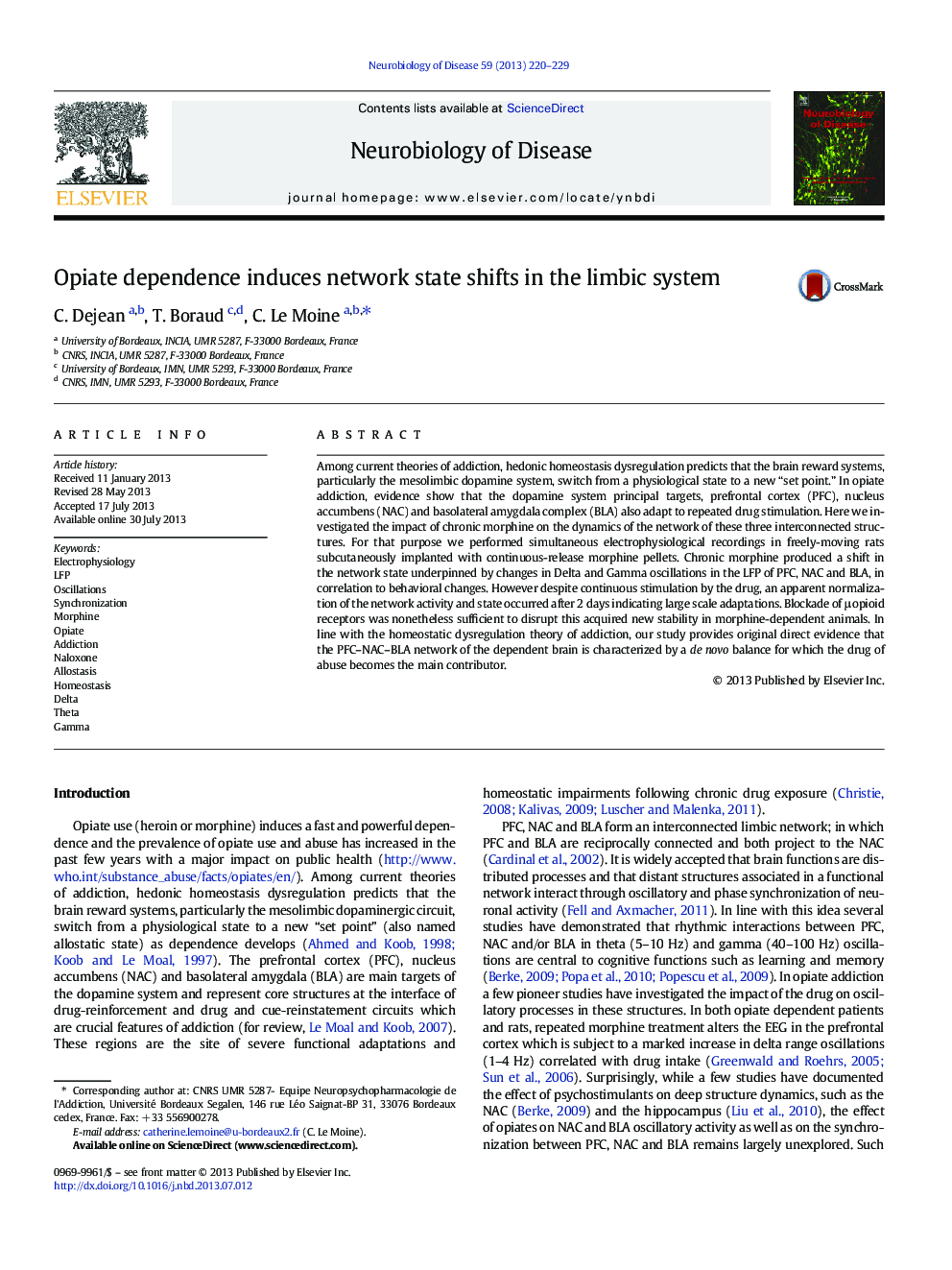| کد مقاله | کد نشریه | سال انتشار | مقاله انگلیسی | نسخه تمام متن |
|---|---|---|---|---|
| 6022281 | 1580665 | 2013 | 10 صفحه PDF | دانلود رایگان |
عنوان انگلیسی مقاله ISI
Opiate dependence induces network state shifts in the limbic system
ترجمه فارسی عنوان
وابستگی به اپی نفرین باعث تغییر وضعیت دولت در سیستم لمبی می شود
دانلود مقاله + سفارش ترجمه
دانلود مقاله ISI انگلیسی
رایگان برای ایرانیان
کلمات کلیدی
موضوعات مرتبط
علوم زیستی و بیوفناوری
علم عصب شناسی
عصب شناسی
چکیده انگلیسی
Among current theories of addiction, hedonic homeostasis dysregulation predicts that the brain reward systems, particularly the mesolimbic dopamine system, switch from a physiological state to a new “set point.” In opiate addiction, evidence show that the dopamine system principal targets, prefrontal cortex (PFC), nucleus accumbens (NAC) and basolateral amygdala complex (BLA) also adapt to repeated drug stimulation. Here we investigated the impact of chronic morphine on the dynamics of the network of these three interconnected structures. For that purpose we performed simultaneous electrophysiological recordings in freely-moving rats subcutaneously implanted with continuous-release morphine pellets. Chronic morphine produced a shift in the network state underpinned by changes in Delta and Gamma oscillations in the LFP of PFC, NAC and BLA, in correlation to behavioral changes. However despite continuous stimulation by the drug, an apparent normalization of the network activity and state occurred after 2 days indicating large scale adaptations. Blockade of μ opioid receptors was nonetheless sufficient to disrupt this acquired new stability in morphine-dependent animals. In line with the homeostatic dysregulation theory of addiction, our study provides original direct evidence that the PFC-NAC-BLA network of the dependent brain is characterized by a de novo balance for which the drug of abuse becomes the main contributor.
ناشر
Database: Elsevier - ScienceDirect (ساینس دایرکت)
Journal: Neurobiology of Disease - Volume 59, November 2013, Pages 220-229
Journal: Neurobiology of Disease - Volume 59, November 2013, Pages 220-229
نویسندگان
C. Dejean, T. Boraud, C. Le Moine,
